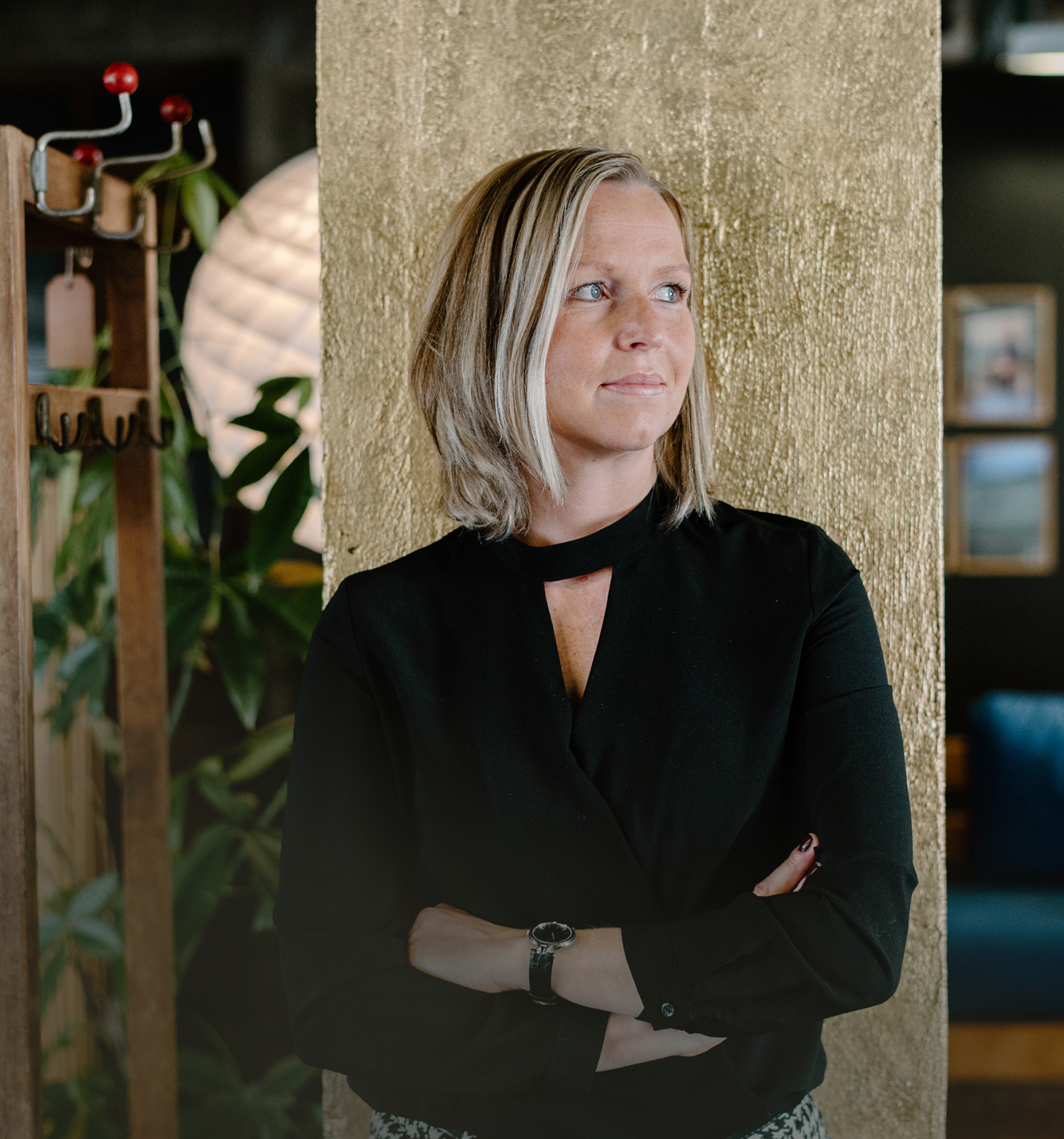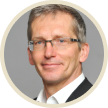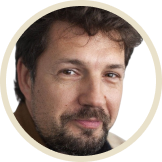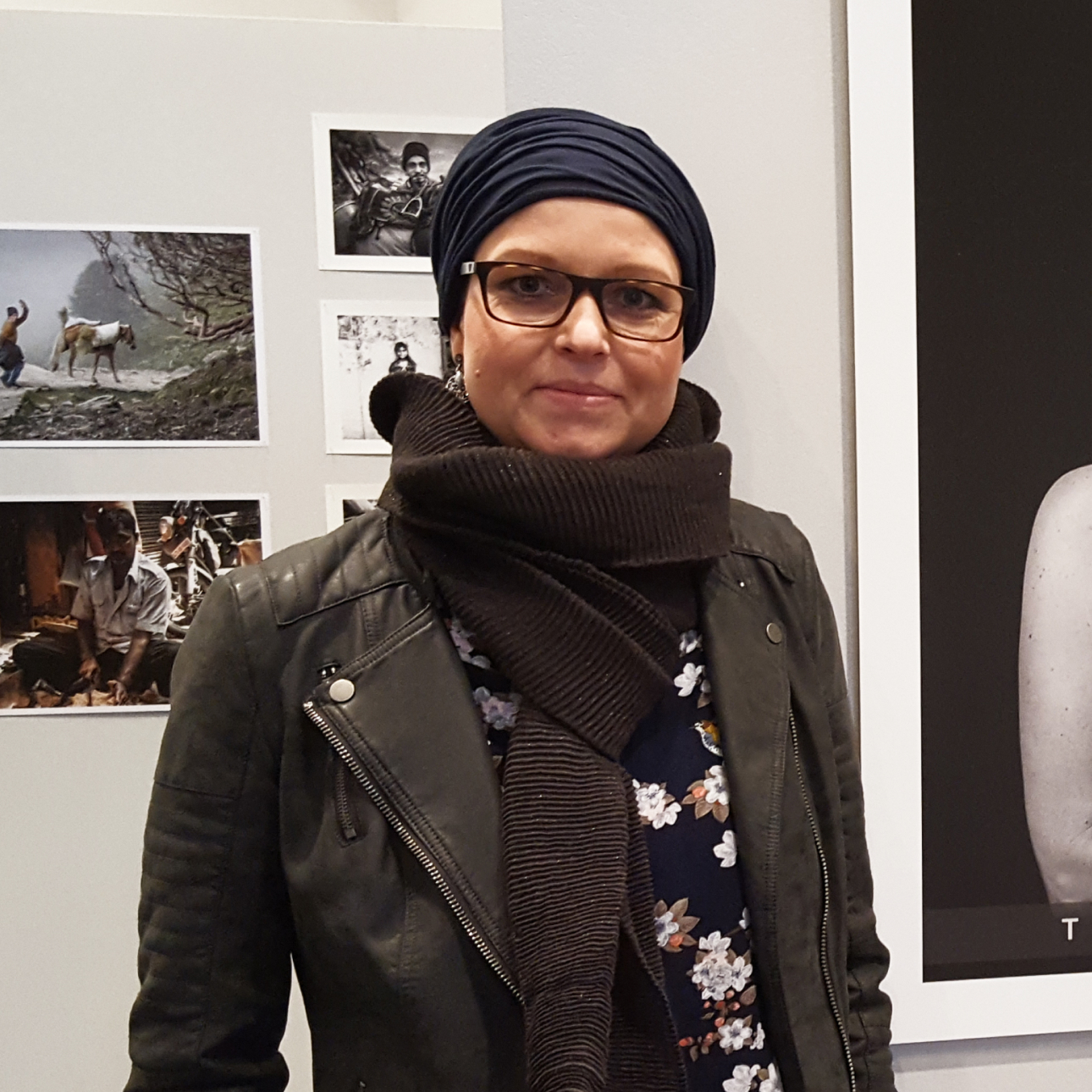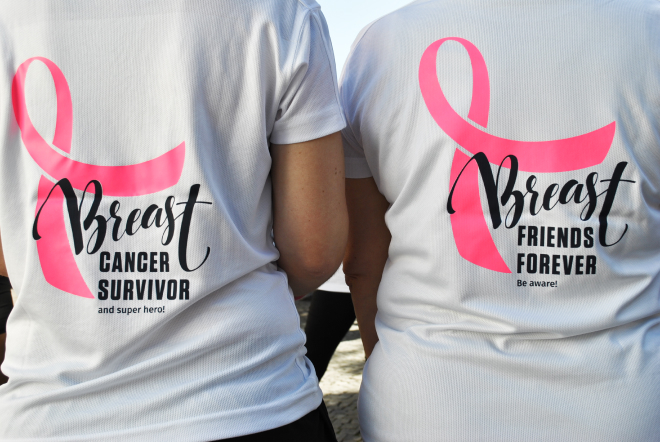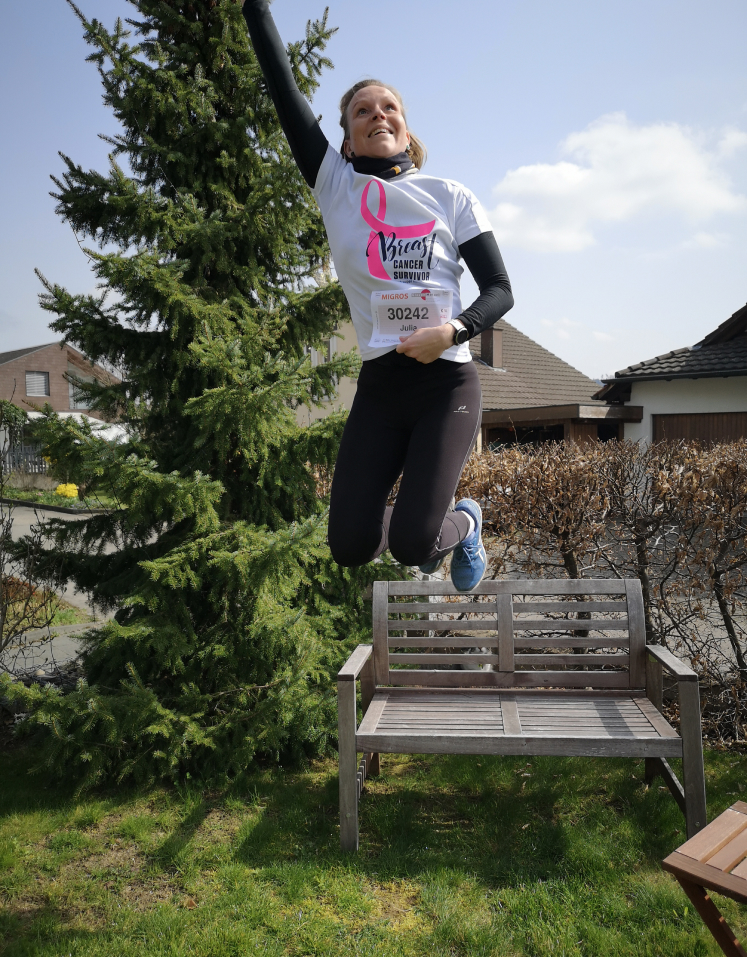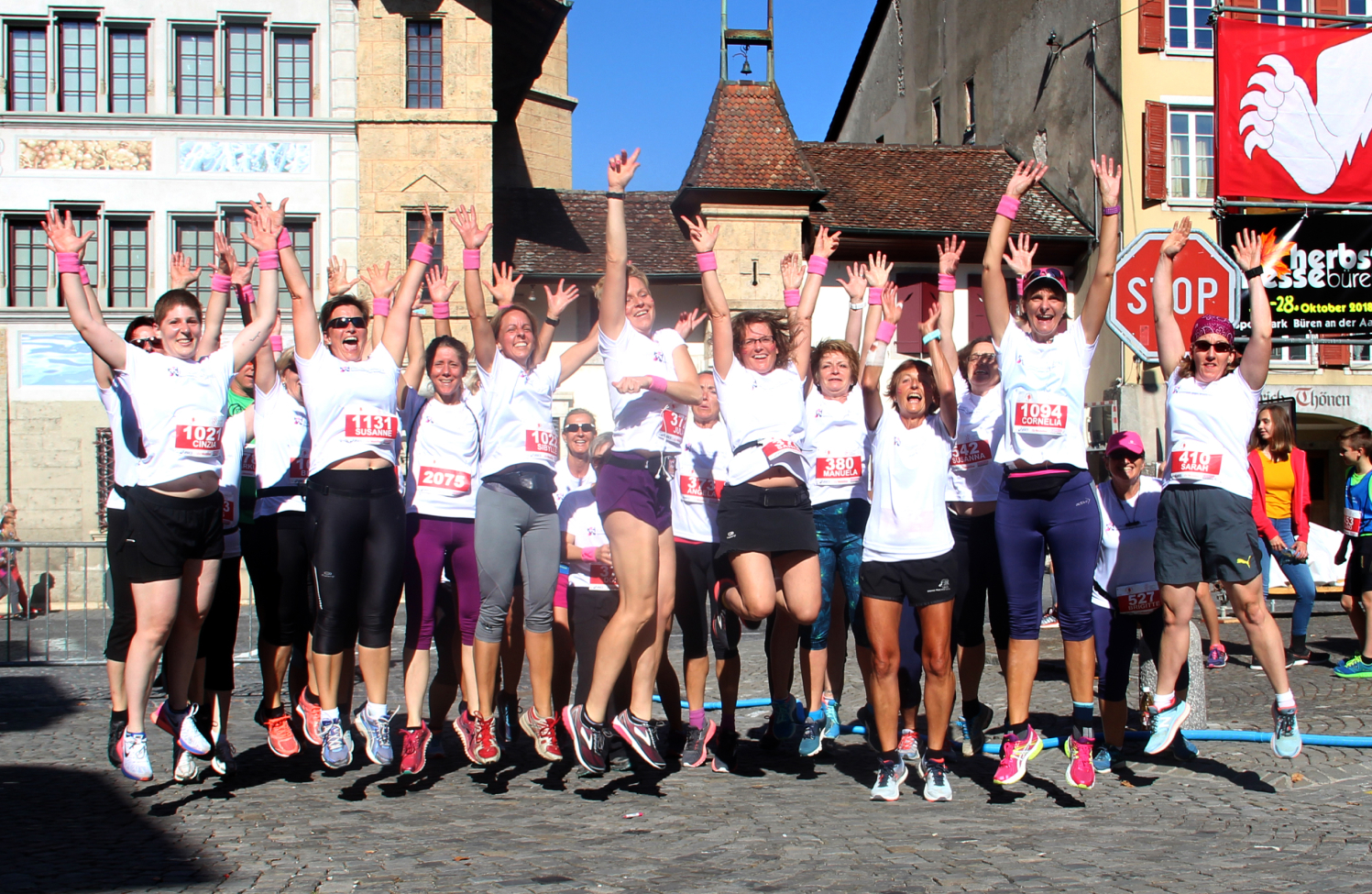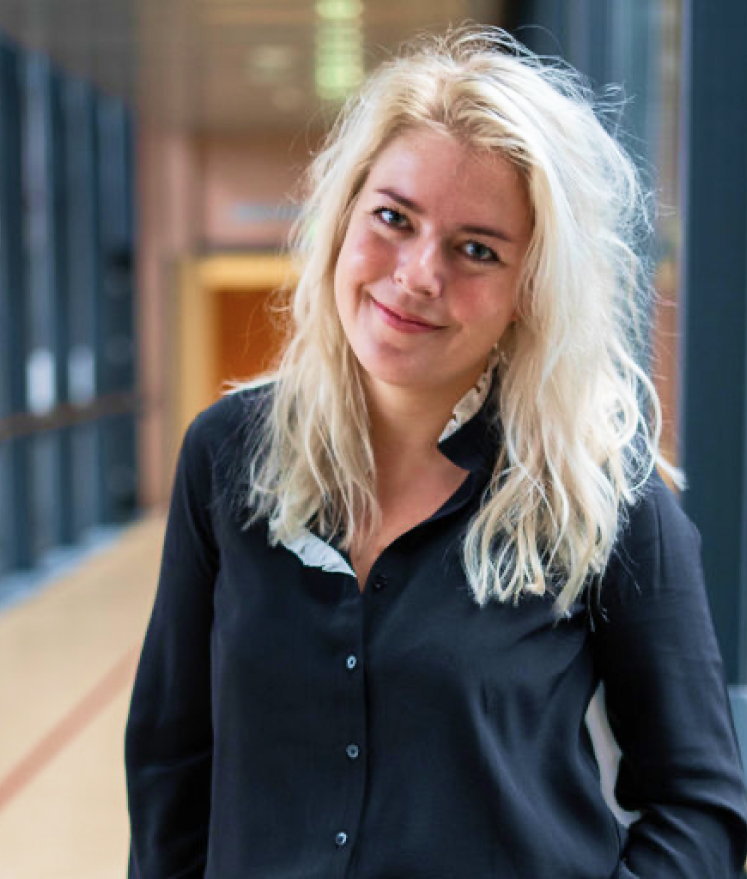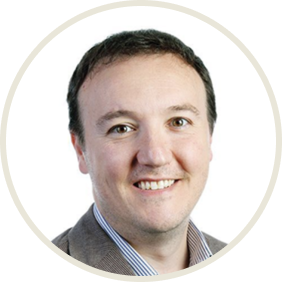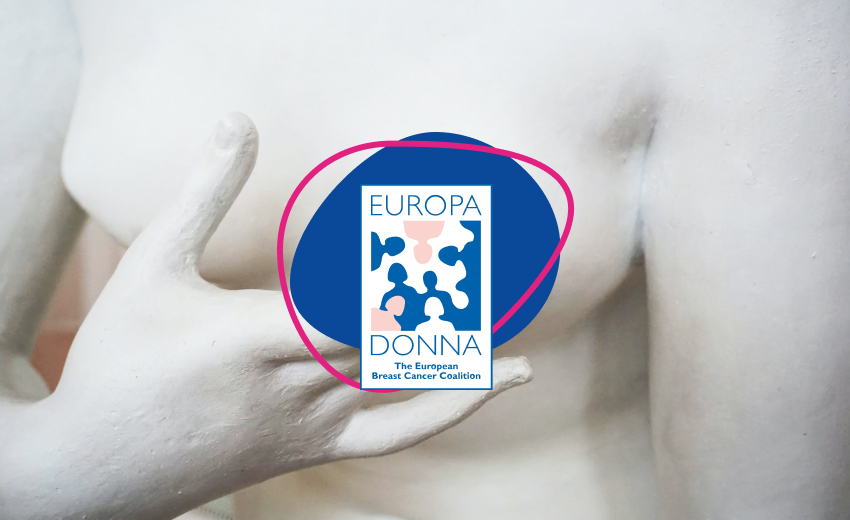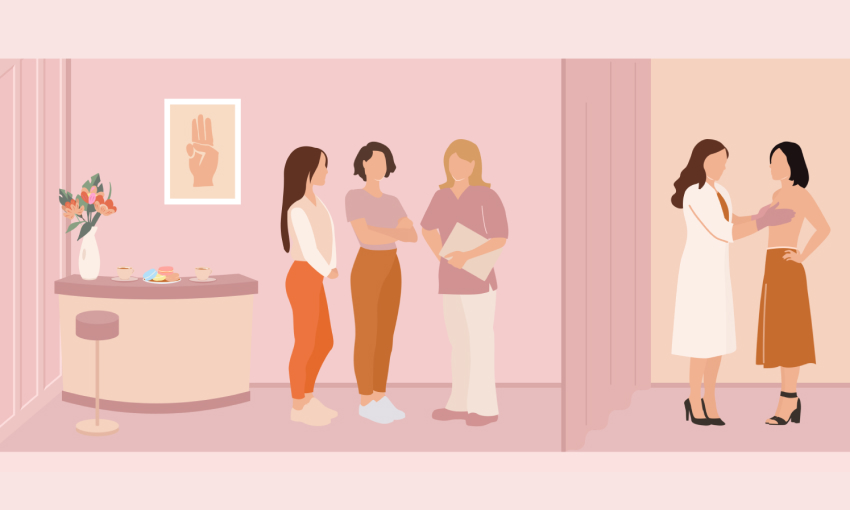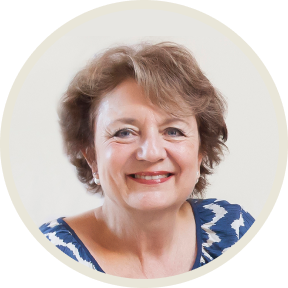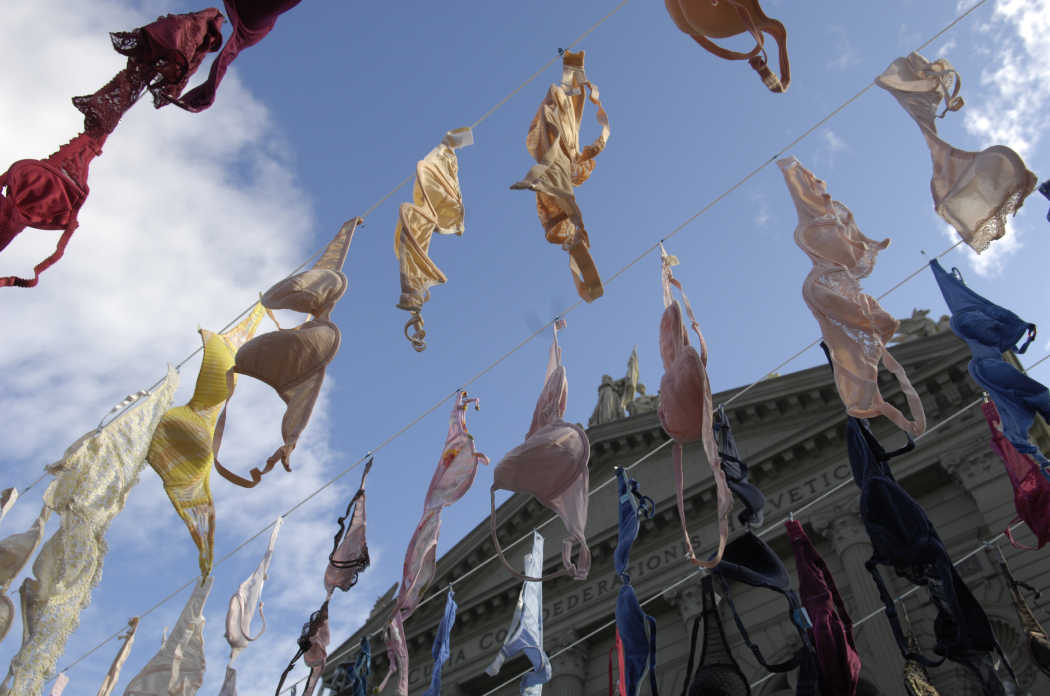issue highlight
Breast Cancer Month
On the occasion of October's breast cancer month, MSD Switzerland carries out an information campaign on breast cancer prevention for the first time, in which EUROPA DONNA Switzerland is taking part. Under the slogan “Say no to breast cancer, say yes to early detection” women (and men) of all age groups are encouraged to take responsibility for themselves and take an active role in breast cancer prevention. In the Pink Cube, a pink container, free breast examinations are offered.
Using the 3-3-3 rule, visitors learn how to examine their own breasts. In addition to external changes such as shape, color and size of the breast or nipples, regular palpation helps to discover hardened areas, swelling and bulging.Not every discovered change is cause for concern. Nevertheless, further medical clarification is important.
